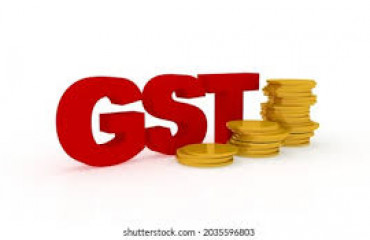
In a blow to EV customers, an AAR order says charging electric batteries at public stations amounts to supply service and will attract GST.
The government is pushing electric vehicle (EV) adoption as a greener alternative to combustion engines, but a recent ruling by the Karnataka Authority for Advance Ruling (AAR) may dampen the enthusiasm. According to the AAR ruling, charging EV batteries at public stations will attract 18% GST.
The matter arose when Chamundeshwari Electricity Supply Corporation Ltd wanted to set up public charging stations (PCS) on its own for charging electric vehicles — both two-wheelers and four-wheelers.
Chamundeshwari Electricity said it was going to provide electric energy to these PCS. All electric vehicle users can access these public charging stations for battery charging. It wanted to issue tax invoices and collect an "electric vehicle charging fee".
This fee would include two components: energy charges and service charges. Energy charge refers to the number of units of energy consumed and service charge refers to the services provided.
The applicant asked the AAR whether energy charges can be treated as exempt as per GST law — as it is a supply of electrical energy ("goods"), GST is levied only on service charges (as supply of services) — or whether it has to consider both energy charges and services charges together as "supply of service" for payment of GST on total charges.
According to the GST law, electrical energy is classified as goods and supply of electrical energy is exempted or kept outside the ambit of the GST law.
The AAR, while delivering the judgement, primarily relied on a clarification issued by the Ministry of Power (letter 23/08/2018-R&R dated 13.04.2018) for the requirement of obtaining a licence by charging stations under the Electricity Act, 2003. The clarification said the charging of a battery involved utilisation of electrical energy for its conversion to chemical energy, which gets stored in the battery. This activity does not involve any sale of electricity to any person as electricity is consumed within the premises owned by the charging station. So, there will be no requirement for the charging station to obtain a licence under the Electricity Act.
The ARR said the electrical energy was put to use as a consumable while charging the battery. In other words, the owner of the EV is being allowed to use the infrastructure and facilities provided by the charging station and so the said activity amounts to supply of service.
The AAR concluded that the "supply of electrical energy" and "service charges" together should be treated as "supply of service". Thus, the activity of charging EV batteries, which is treated as supply of service, gets covered under SAC 998714 and attracts GST @18%. It added that the GST collected, which is treated as output tax, can be set-off against the input tax credit received by the applicant on its inputs and input services,
"While one may consider this a positive ruling for the industry as treating EV charging activity as taxable service will give the industry an option to avail input tax credit, its wider impact on the EV ecosystem, which includes EV users, is to be seen with a critical lens," said Harpreet Singh, Partner, Indirect Tax, KPMG. "In order to provide an impetus to the growth of the EV ecosystem and to foster the government's green initiatives, an active engagement with stakeholders, industry experts and tax professionals is required so that a collaborative effort can be taken to arrive at a suitable GST framework for EV charging stations."
